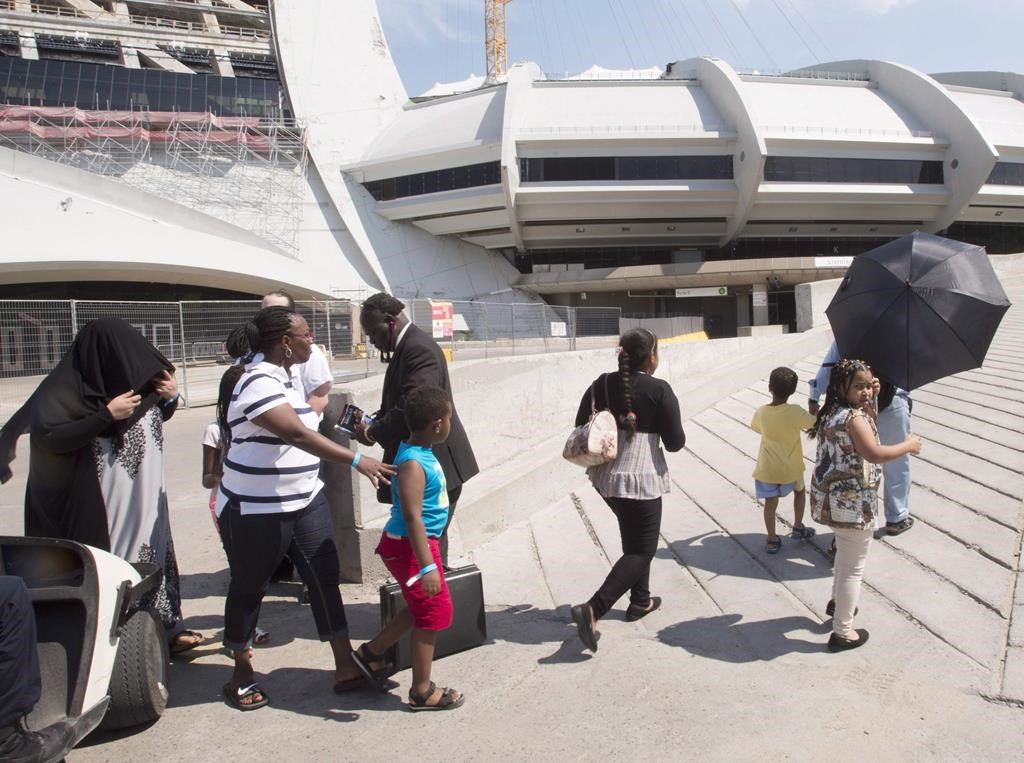Support strong Canadian climate journalism for 2025
A long-promised triage system aimed at redirecting irregular border crossers from crowded shelters in Montreal and Toronto will not be in place until as late as the end of September.
The federal government says it's working with individual municipalities across Ontario and must identify available housing capacity before it can roll out its triage program.
Ottawa announced the so-called triage system in April following concerns raised by the province of Quebec over an influx of asylum seekers flooding temporary housing facilities in Montreal.
Since then, Toronto has also seen a spike in refugee hopefuls converging on its homeless shelters and college dormitories. Both Quebec and Toronto have called on the feds for help.
Ottawa's response was the promised triage system, which would identify asylum seekers interested in settling in areas outside Montreal or Toronto to await the outcome of their refugee claims.
But the system has not materialized and Ottawa says it is still working on it.
In May, government said it was delayed due to the Ontario provincial election. Now, Ottawa says the new Doug Ford administration is not playing ball so it has to go to municipalities to find shelter options.
While this is being worked out, Ottawa is paying to house about 500 asylum seekers in hotels in the Toronto suburbs of Mississauga, Etobicoke and Markham, as the college dorms in Toronto currently housing them must be vacated by Aug. 9.
The contract with these hotels extends until Sept. 30. That's when the feds hope to be able to roll out their triage system — five months after it was first announced.
"Our plan is to have a triage system in place by (Sept. 30) to allow us to better manage the flow of asylum seekers to different municipalities," said Mathieu Genest, press secretary for Immigration Minister Ahmed Hussen.
The City of Toronto is co-ordinating the outreach to municipalities in Ontario to identify areas where housing capacity exists. The city is working closely with the federal government to secure accommodation for the approximately 3,053 refugees and asylum seekers currently living in the city, Toronto spokeswoman Daniela Magisano said Wednesday.
Earlier this month, Toronto Mayor John Tory convened an urgent call with mayors from other large cities in Ontario, asking them to identify any sites or facilities that could be repurposed as temporary housing, as well as connections to employers for job opportunities.
Mayors responded positively to Toronto's call for help, including Frank Scarpitti, mayor of Markham.
But not everyone in Markham is ready to welcome the refugees.
A protest on the weekend denounced any plan to house "illegal border crossers" in the community. The demonstration came to fisticuffs, with some protesters waving signs saying, "Markham say no to illegal border crossers," and "Protect our city, protect our home," while counter-protesters fought them with their own signs and chants of "Refugees are welcome here."
Scarpitti says he believes the protest was organized by candidates running against him in the upcoming municipal elections and said rumours of 5,000 asylum seekers coming to Markham are false.
The mayor went out of his way to stress that while he believes in welcoming refugees and wants to help Toronto with its housing crunch, he is not "throwing the doors wide open" to asylum seekers.
"All that I did was indicate that we would see, because we have very limited options as the City of Markham... if there was any ability to help out in some small way given the limited options that we had," Scarpitti said Wednesday in an interview.
"This notion that 5,000 are coming to the city of Markham is a gross exaggeration and meant to instill a reaction. And shame on these people, these candidates."
NDP immigration critic Jenny Kwan says she believes the backlash against irregular migrants is a result of tensions caused by a lack of forward planning and leadership from the federal government.
"It also doesn't help when you have politicians misrepresenting the situation. Calling asylum seekers 'illegals' — that really exasperates the situation and creates the negative sentiments and dehumanizes asylum seekers," she said, noting Prime Minister Justin Trudeau and Hussen have referred at times to irregular migration as "illegal."
She questions why government is still trying to work out details of its triage plan five months after it was announced and well over a year since flows of refugee claimants began to cross irregularly across the U.S.-Canada border.
"By and large we knew that the numbers were going to go up because of the Trump administration," she said.
"Right from the get-go, the NDP (and) I have called for the government to come up with a strategy to deal with the situation. We knew that housing was going to be a critical component of this."





Comments